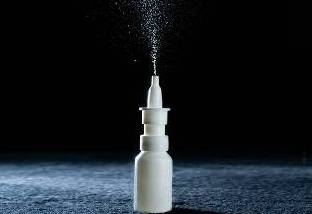Researchers in Japan Study Inhalable Gene Therapy for Mesothelioma
Research & Clinical TrialsWritten by Tim Povtak | Edited By Walter Pacheco

Patients with malignant pleural mesothelioma may be turning to orally inhalable gene therapy in the future, easing the treatment burden for this cancer with no cure.
The recent focus on identifying genetic mutations that make individuals more susceptible to certain cancers – including mesothelioma – has led to related research on how best to combat the problem.
A collection of doctors and scientists in Japan have developed versions of two tumor-suppressing drugs targeting genetic mutations that have shown impressive effectiveness in the laboratory for both non-small cell lung cancer and pleural mesothelioma.
The drugs, SFD-p16 and SFD-p53, are combined with a novel inhalant powder to deliver the active ingredients directly to the lungs. The treatment is designed with a simplicity that would allow patients to self-administer. Springer Nature published the study on May 23.
“This study suggests that inhalable gene drugs are effective treatments for NSCLC and MPM,” the authors wrote. “These findings suggest that cancer gene therapy using inhalable drugs may constitute a novel therapeutic regimen and improve patients’ qualify of life owing to the low invasiveness of the mode of administration.”
Effective, Noninvasive Treatment Is Rare
Aggressive treatment for mesothelioma is hard on patients, and may lead to a significantly decreased quality of life. Major mesothelioma surgery can be physically overwhelming and its side effects long-lasting. Standard-of-care chemotherapy, the most common treatment, often comes with tough side effects and limited effectiveness.
In laboratory testing using both lung cancer and mesothelioma cell lines, there was a clear decrease in tumor cell proliferation with the laboratory engineered drugs, according to the study.
The growth inhibition rate was almost 50% using SFD-p16, compared to just 9.3% for the placebo group. SFD-p53 produced a 52.1% growth inhibition rate.
In vivo testing using mouse models injected with the tumor cell lines produced similar results with both lung cancer and mesothelioma, particularly involving the drug SFD-p16. Using luminescence imaging, researchers documented tumor suppression within 24 hours after administration of the drug. Tumors were removed in a week and showed significant change in volume.
The research team at the Institute for Advanced Medical Sciences at Hyogo College of Medicine in Japan did not respond to requests from The Mesothelioma Center at Asbestos.com for additional insight into its findings.
Gene Therapy for Mesothelioma Gaining Ground
Potential use of gene therapy for mesothelioma cancer has expanded significantly in recent years. It was sparked initially by the work of Dr. Michele Carbone at the University of Hawaii Cancer Center, who first identified the BAP-1 genetic mutation in mesothelioma patients more than a decade ago.
Carbone is an authority on the role of genetics in the development of mesothelioma cancer. He recently led a study that identified how mutations in the BLM gene were making people more susceptible to developing mesothelioma when exposed to asbestos fibers, the primary cause of the cancer.
He believes early testing for genetic mutations will lead to longer survival for those diagnosed, particularly with targeted therapy coming of age.
Clinical Trials on the Horizon
This most recent, orally inhalable gene therapy development may soon move into the clinical trial stage, where others already are.
For example, Dr. Prasad Adusumilli, thoracic surgeon and scientist at Memorial Sloan Kettering Cancer Center in New York City, is leading a clinical trial involving the genetic modification of a patient’s T cells, a type of white blood cell.
The reprogramming of the T cells targets mesothelin, a protein-coding gene, which is found mutated in several cancers.
Adusumilli, co-director of the mesothelioma program at Memorial Sloan Kettering, believes T-cell therapy will eventually become part of standard of care for mesothelioma.
Authors of the Japanese study on inhalable drugs stressed the importance of continued research.
“New treatments are imperative for lung cancer, including non-small cell lung cancer and malignant pleural mesothelioma, due to its high mortality,” they wrote. “New treatment modalities for MPM and NSCLC need to be researched.”







